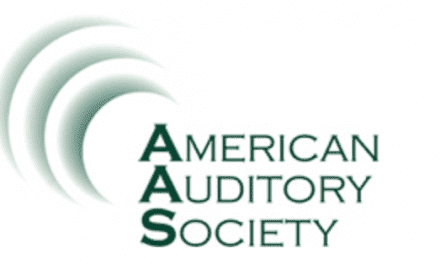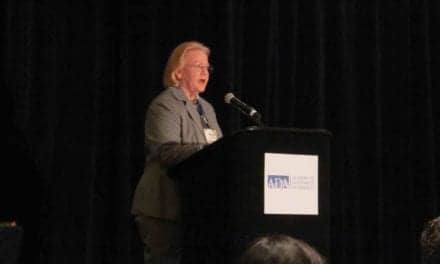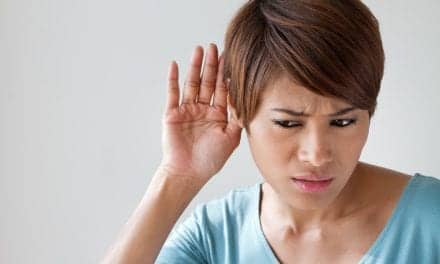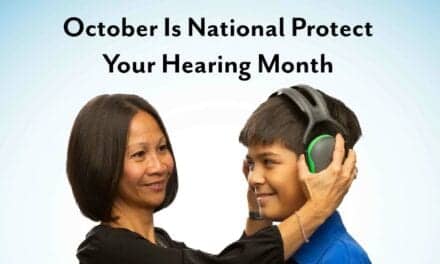About 650 audiologists, hearing aid specialists, and ENT physicians attended the inaugural Empower Conference on September 12-14 at the Coronado Springs Resort in Orlando, hosted by Your Hearing Network (YHN). The event, open to everyone, was dedicated to helping independent hearing care providers grow and succeed in their practices and was conceived as opportunity for all the hearing care providers—regardless of discipline or membership/affiliation to any buying group, network, manufacturer, etc—to learn, engage, and stay current in the hearing healthcare business.
The conference succeeded in offering an impressive and diverse variety of sessions, as well as over 40 exhibitors participating in the exhibit hall and in seminars, including Oticon, Phonak, Signia, Widex, Unitron, and the Ida Institute. “We envision this as a place where you can enjoy meeting and collaborating with your peers while challenging one another on issues and concerns that impact the industry, without political interests or conflicting agendas,” stated YHN President Scott Klein.
General session. In the opening general session on Friday, Klein introduced ENT Jeffrey Weingarten, MD, and audiologist Rachel Baboian, AuD, who described their two very different businesses, with the former being a well-established multidisciplinary multi-office practice group consisting of 5 ENTs and 10 audiologists, and the latter being a single-location privately owned audiology practice. They used their specific experiences to demonstrate how YHN helped them build business plans that allowed them to manage cost of goods (COGs) and overhead, promote their practices effectively, deal intelligently with managed care and third-party payers, and address government requirements in a constantly changing market.

Dan Quall, MS, of Fuel Medical Group challenged some of the conventional ideas about changes in the market and provided reasons for why the future of hearing healthcare remains bright.
Audiologist Dan Quall, MS, the director and chair of the Hearing Network Alliance (HNA) for the American Association of Payers, Administrators and Networks (AAPAN) as well as director of managed care for the Fuel Medical Group, lent his perspectives from decades of experience in practice and working with clinics across the United States. (HNA is part of the National Association of Specialty Health Organizations which brings together senior leaders of hearing health networks and is affiliated with AAPAN.) Quall reviewed some of the most important historical changes in the hearing healthcare field during the past 60 years, noting that many of them—including the advent of state licensure requirements, audiologists dispensing hearing aids, and the elimination of the patient waiver system—were initially met with great trepidation by the field, but later came to be accepted as positive change. He believes that the gloom-and-doom talk surrounding OTC hearing aids and managed care is counterbalanced by the fact that quality professional care is extremely effective and valuable to the consumer. He pointed out market penetration and satisfaction rates for OTC/DIY hearing devices are generally low in those countries (eg, Japan and Switzerland) where these devices are available compared to the United States where MarkeTrak 10 reports an 84% satisfaction rate.
“Maybe we’ve prevailed [in the past] because we are good at what we do!” noted Quall. However, he cautioned that large market changes ahead will require adjustments in how you do business. Certain distribution channels (eg, VA, big box, managed care, and online sales) continue to grow while there is contraction in the independent dispensing channel which he estimates is about 26% of the market compared to over 90% only 20 years ago. When looking at the wide range of treatable hearing losses, Quall notes that high-quality PSAPs/OTC may be useful for those patients with mild losses who probably require and desire fewer hours of professional attention. By focusing on smart business and clinical concepts (eg, unbundling, segmenting patients by complexity, etc) and benefitting from the ideas and tools of borne from networks like YHN, he is confident dispensing professionals will continue to thrive—as they have in the past—in this latest age of change.

Douglas Beck, AuD, conducted a session on issues and outcomes in dealing with speech in noise and noise reduction.
Keynote speaker Lee Salz provided information on what truly defines “differentiation.” He emphasized that how you sell, not just what you sell, is what defines the patient experience, and providing meaningful value is always at the heart of what makes a practice successful. The key question all providers need to ask, says Salz, is “What is it that I do differently that would be meaningful to the patient that my competition isn’t doing.”

Vince Russomagno moderated a panel of highly successful entrepreneurs outside of hearing healthcare who shared their experiences in building their businesses.
Large variety of business- and clinical-oriented sessions. There were nearly 100 total seminars and special sessions offered at the Empower Conference, including topics like automated real-ear measurements by John Pumford, PhD, how to analyze your practice’s position within the marketplace by Robert Traynor, EdD, MBA, and effective internet and web revenue drivers by Henrik Nielsen. Some of the hotter current topics included new pathways in care via OTC devices by Brian Taylor, AuD, new issues involving cochlear implants by Dan Quall, and eAudiology’s transformation of hearing healthcare by Brandy Heckroodt, AuD. On Friday evening, motivational speaker Jim Smith, Jr, PhD, author of The No Excuse Guide to Success: No Matter What Your Boss Throws at You, provided a high-energy keynote about how to “play full out and jump into BIGness” with a no-excuses approach.

Oticon President Gary Rosenblum covered current trends in the hearing industry and explained why hearing care providers, their professional organizations, consumer groups, and industry need to forge a forge a consensus statement on Medicare coverage and “get in front” of future changes.
The need for a concerted message on Medicare. One recurring theme that emerged from the Empower Conference was that we are now at a critical juncture in hearing healthcare and managed care, and all of the professional associations and its members need to speak with one voice when it comes to the subject of Medicare. In a manufacturer panel moderated by Hearing Review Editor Karl Strom, both WS Audiology President Eric Timm and Oticon President Gary Rosenblum, two board members of the Hearing Industries Association (HIA), said that they don’t believe OTC hearing aids will have a negative impact on dispensing practices, and OTC may even provide some new avenues for growth through service provisions. They also emphatically agreed that telehealth is not just a future fixture in audiologic care, it is a large force present today that will dramatically improve many facets of the patient-provider relationship and will maximize the value proposition for professional hearing care. The panel discussion, which included comments from Dr Taylor of Signia, revealed that HIA’s number-one area of discussion these days was not OTC hearing aids or the upcoming FDA proposed regulations on these devices; what they are discussing is how Medicare might be implemented in ways that could negatively affect hearing care professionals and patients with hearing impairment.
In a separate standing-room-only session, “Trends and Developments in the Hearing Healthcare Industry,” Rosenblum said the entire hearing healthcare field—including HIA and the four national professional associations (ASHA, AAA, ADA, and IHS)—need to come together and forge a consensus statement on Medicare coverage and “get in front” of future changes. As the Administration, Congress, and CMS consider ideas for possible coverage and reimbursement in traditional Medicare, the hearing industry, medical professionals, and advocacy organizations should be included in the discussion from the beginning. Rosenblum, who is also vice-chairman of HIA, says the trade organization is currently drafting a position paper on Medicare and hearing aids.
A pre-conference learning event hosted by the Disney Institute was attended by about 135 hearing care providers who learned about special techniques for delivering customer experiences that can differentiate a practice from its competition.
Next Year. The 2020 Empower Conference will be announced soon at its website www.empower-2019.com.






